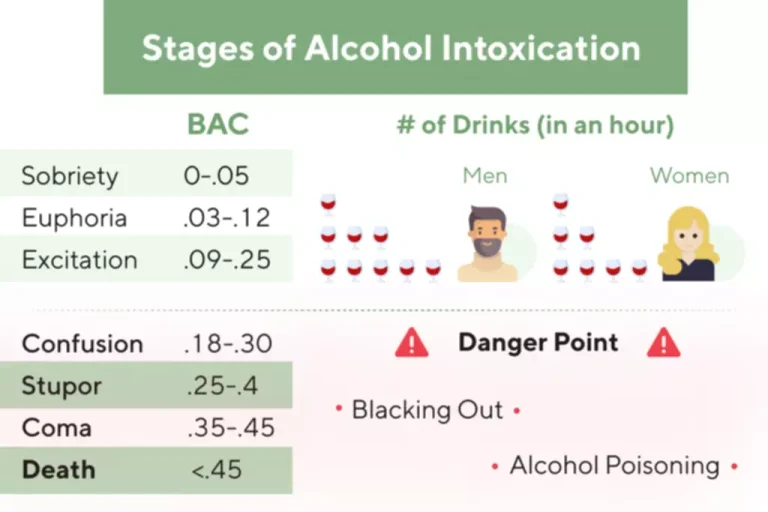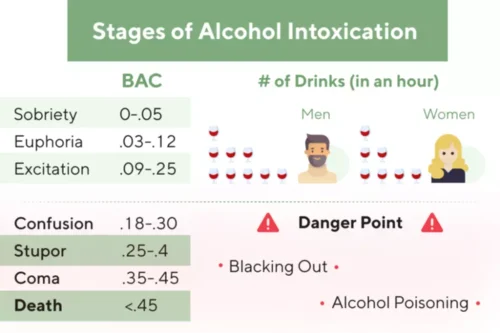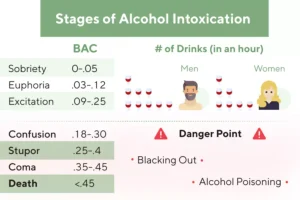Sober living
9 Signs that Your Wine Habit is Becoming a Real Addiction

The average alcohol level of wine is between 11 and 13%, though different varieties may have an ABV of over 20% on the high end and less than 6% on the low https://ecosoberhouse.com/ end. Most facilities offer both inpatient and outpatient treatment programs. Hey, we’ve all made that one stupid move at that one party after knocking back a few too many. But if you regularly act in ways you aren’t proud of when under the influence, yet still find yourself drinking, that’s an indication to pause and think about your goals. Discreet, accessible treatment from the privacy of home—science-backed care is just a click away.
Long-Term Effects

While the majority of wine enthusiasts are able to enjoy wine responsibly, there are individuals who may develop an addiction to alcohol. This can result in a range of negative consequences, including health issues, strained relationships, and impaired judgment. It is crucial to recognize the signs of addiction and seek help if needed. Obviously, you don’t need alcohol every single night for that; in fact, to avoid hurting your brain health, the recommended standard number of drinks per week is four. This time around, for the sake of research, this wine-every-day trial was worth a go. In the long term, regularly drinking large amounts of wine can lead to more severe health problems.
- The organization’s website explains that as your liver slowly metabolizes alcohol, the substance can continue to circulate throughout your body.
- Eventually, people who binge often can also experience brain damage, which affects memory and decision-making and self-sufficiency abilities.
- Depending on your specific needs, a wide range of treatment options exist including both inpatient and outpatient rehabilitation.
- In the long term, regularly drinking large amounts of wine can lead to more severe health problems.
Treatment for Wine Addiction
Are you worried that your wine habit is becoming an addiction? From Girl Scout Cookie-and-wine pairings to novelty shirts that declare, “You had me at Merlot,” to coffee cups that proclaim, “This is actually wine” … vino is a fixture of our social landscape. It’s more socially acceptable than drinking vodka straight by yourself in the evening. For many, a glass of wine often represents a reward and a chance to unwind for the busy and sophisticated man or woman.
What Are the Long-Term Effects of Drinking Wine Every Day?

Your body also produces about 700 milligrams of sulfites daily as you metabolize the protein in your food and excrete it as sulfate. To do so, it has compounds called sulfite oxidases that create sulfate from sulfite — the 20 milligrams in a glass of wine are unlikely to addicted to wine overwhelm your sulfite oxidases. Alcohol, including wine, acts as a depressant on the central nervous system. It affects the brain’s neurotransmitters, such as dopamine, which plays a key role in the brain’s reward system.
Wine Addiction Effects, Risks, & Treatment Options

However, drinking more than a couple of glasses of wine each day, or drinking alcohol in excess over time, can also damage your long-term health and wellbeing. Our writers and reviewers are experienced professionals in medicine, addiction treatment, and healthcare. AddictionResource fact-checks all the information before publishing and uses only credible and trusted sources when citing any medical data. Kali Lux is a consumer marketing leader with a focus on healthcare and wellness.

Substance Use Treatment
Everyone is different, so the amount of wine that is safe to drink varies from person to person. This makes an average bottle of wine a considerably more concentrated source of alcohol than beer or cider, and a less concentrated source of alcohol than hard Alcohol Use Disorder liquor. Similarly, you might engage in risky sexual behaviors, such as unprotected sex with multiple people.
